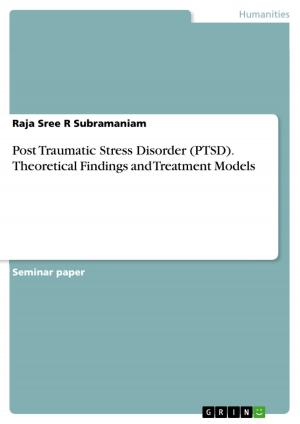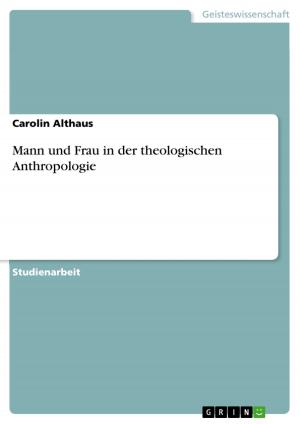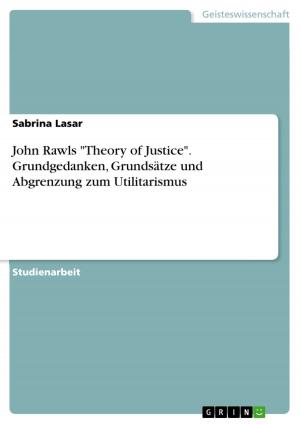The Relationship between the Natural and Supernatural in Shelley's Frankenstein and Poe's M.S. Found in a Bottle
Fiction & Literature, Literary Theory & Criticism, British| Author: | Theresia Knuth | ISBN: | 9783638614474 |
| Publisher: | GRIN Verlag | Publication: | March 10, 2007 |
| Imprint: | GRIN Verlag | Language: | English |
| Author: | Theresia Knuth |
| ISBN: | 9783638614474 |
| Publisher: | GRIN Verlag |
| Publication: | March 10, 2007 |
| Imprint: | GRIN Verlag |
| Language: | English |
Essay from the year 2006 in the subject English Language and Literature Studies - Literature, grade: A3 (excellent), University of Edinburgh (Department of English Literature), course: Romanticism, 4 entries in the bibliography, language: English, abstract: Perceptions of nature are central to much romantic literature, whereas notions of the supernatural can rather be found in a type of literature that is associated with the Romantic period: the Gothic. Lacking a precise and stable meaning, the term commonly refers to literature that dramatizes the fantastic, supernatural, and macabre and features narrative suspense that creates horror. In this essay, different aspects of the relationship between the natural and the supernatural will be examined in two Gothic texts: Mary Shelley's Frankenstein; or, the Modern Prometheus and Edgar Allan Poe's 'M.S. Found in a Bottle' . In Frankenstein, nature is presented in harmony with the actually unnatural, in some respects even supernatural, creature, whereas it appears to oppose as well as soothe the creator who transgressed the boundaries of natural science. On the other hand, in Poe's 'M.S. Found in a Bottle' natural force, embodied in the sea, does not have a counterpart, whether natural or unnatural, but culminates in a supernatural, all-devouring abyss. This culmination, though, links the two texts: Frankenstein's desire, his 'almost supernatural enthusiasm' (Shelley 30), is realized in bringing to life the supernatural creature which ultimately, like natural forces in Poe's story, proves destructive. Another common ground situated on the border of natural and supernatural is the reoccurring notion of sublimity, which will be considered rather extensively.
Essay from the year 2006 in the subject English Language and Literature Studies - Literature, grade: A3 (excellent), University of Edinburgh (Department of English Literature), course: Romanticism, 4 entries in the bibliography, language: English, abstract: Perceptions of nature are central to much romantic literature, whereas notions of the supernatural can rather be found in a type of literature that is associated with the Romantic period: the Gothic. Lacking a precise and stable meaning, the term commonly refers to literature that dramatizes the fantastic, supernatural, and macabre and features narrative suspense that creates horror. In this essay, different aspects of the relationship between the natural and the supernatural will be examined in two Gothic texts: Mary Shelley's Frankenstein; or, the Modern Prometheus and Edgar Allan Poe's 'M.S. Found in a Bottle' . In Frankenstein, nature is presented in harmony with the actually unnatural, in some respects even supernatural, creature, whereas it appears to oppose as well as soothe the creator who transgressed the boundaries of natural science. On the other hand, in Poe's 'M.S. Found in a Bottle' natural force, embodied in the sea, does not have a counterpart, whether natural or unnatural, but culminates in a supernatural, all-devouring abyss. This culmination, though, links the two texts: Frankenstein's desire, his 'almost supernatural enthusiasm' (Shelley 30), is realized in bringing to life the supernatural creature which ultimately, like natural forces in Poe's story, proves destructive. Another common ground situated on the border of natural and supernatural is the reoccurring notion of sublimity, which will be considered rather extensively.















